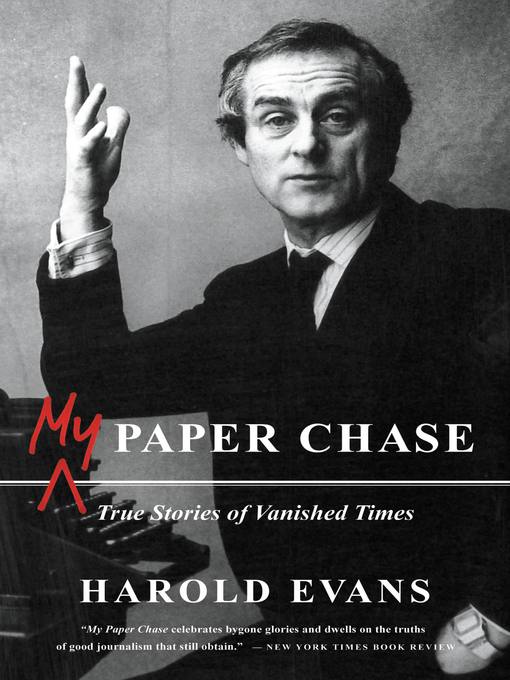
My Paper Chase
True Stories of Vanished Times
کتاب های مرتبط
- اطلاعات
- نقد و بررسی
- دیدگاه کاربران
نقد و بررسی

Starred review from September 14, 2009
Old-school newspapering comes alive in this scintillating memoir. Anglo-American journalist Evans (The American Century
) reminisces about his rise up the ladder of English newspapers to its pinnacle as editor of the Sunday Times
and his late-career hop across the ocean to run Condé Nast Traveler
and the publisher Random House. The author depicts British journalism as a more rugged affair than the American version; editor Evans dodges British laws that permit prior restraint of news stories by the government, gets sued by the Irish Republican Army and battles a thuggish printers' union that he hates even more than he does his boss, Rupert Murdoch. America presents its own unique hardships, including protracted discussions with Marlon Brando over acquiring his memoirs, during which the blowsy thespian accuses Evans of being a CIA agent. Evans creates a lively, evocative portrait of 20th-century journalism: the mad deadline pressure of the copy-desk, stocked with Dickensian characters; the epic investigative pieces that make reporting a kind of spy craft; the obsessive pull of editorial crusades against official wrongdoing. Written with self-deprecating humor and quiet conviction, this is a fine valedictory for a heroic style of journalism one hopes still has a future. Photos.

September 1, 2009
One of the great editors of our era chronicles his life in news reporting and book publishing.
As editor of the London Sunday Times and The Times, and later as president and publisher of Random House, Evans (War Stories: Reporting in the Time of Conflict from the Crimea to Iraq, 2003, etc.) not only told the stories that changed the social and political world, he often was part of them. He began life as the son of working-class parents in 1930s Manchester, England. Early on he became aware of two things: the seemingly magical way in which newspapers would deliver a torrent of information, and the demarcations of success that were"ordained by the hierarchies of class." Yet rise Evans did. The author is at his best recounting daily life in war-torn England and his early efforts to become a newspaper man. He lovingly describes the smells ("lead, antimony, and tin…hot metal marinated with printer's ink" in the typesetting room) and noise (a cacophony of manual typewriters and animated phone calls) of his chosen profession. More important, Evans presents a narrative of stories and their consequences: the failure of the British health system to provide women with simple screening for cervical cancer; the official ignorance of the pollution that was literally choking the life out of Northern England; the willful failure to recognize and act on the struggles of children born without limbs after their mothers took Thalidomide. In these and many other cases, Evans exposed the"vast official carelessness" that permeated British political life. Of his life in America, which began in the'80s, Evans says relatively little, outside of a few anecdotes of signing book contracts with such luminaries as Marlon Brando, Richard Nixon and a then-unknown politician, Barack Obama. A second volume, covering these years, would be most welcome.
Despite the title, Evans's memoir is more than relevant in the age of computer news; good reporting still demands what Evans exemplifies here—honesty, courage and dogged determination.
(COPYRIGHT (2009) KIRKUS REVIEWS/NIELSEN BUSINESS MEDIA, INC. ALL RIGHTS RESERVED.)

























دیدگاه کاربران